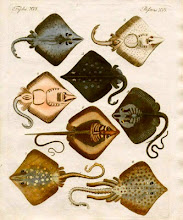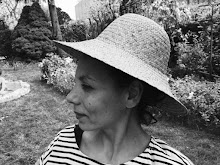By Laura Riding
The secrets of the mind convene splendidly,
Though the mind is meek.
To be aware inwardly
of brain and beauty
Is dark too recognizable.
Thought looking out on thought
Makes one an eye:
Which it shall be, both decide.
One is with the mind alone,
The other is with other thoughts gone
To be seen from afar and not known.
When openly these inmost sights
Flash and speak fully,
Each head at home shakes hopelessly
Of being never ready to see self
And sees a universe too soon.
The immense surmise swims round and round
And heads grow wise
With their own bigness beatified
In cosmos, and the idiot size
Of skulls spells Nature on the ground,
While ears listening the wrong way report
Echoes first and hear words before sounds
Because the mind, being quiet, seems late.
By ears words are copied into books,
By letters minds are taught self-ignorance.
From mouths spring forth vocabularies
To the assemblage of strange objects
Grown foreign to the faithful countryside
Of one king, poverty,
Of one line, humbleness.
Unavowed and false horizons claim pride
For spaces in the head
The native head sees outside.
The flood of wonder rushing from the eyes
Returns lesson by lesson.
The mind, shrunken of time,
Overflows too soon.
The complete vision is the same
As when the world-wideness began
Worlds to describe
The excessiveness of man.
But man's right portion rejects
The surplus in the whole.
This much, made secret first,
Now makes
The knowable, which was
Thought's previous flesh,
And gives instruction of substance to its intelligence
As far as flesh itself,
As bodies upon themselves to where
Understanding is the head
And the identity of breath and breathing are established
And the voice opening to cry: I know,
Closes around the entire declaration
With this evidence of immortality--
The total silence to say:
I am dead.
For death is all ugly, all lovely,
Forbids mysteries to make
Science of splendor, or any separate disclosing
Of beauty to the mind out of body's book
That page by page flutters a world in fragments,
Permits no scribbling in of more
Where spaces are,
Only to look.
Body as Body lies more than still.
The rest seems nothing and nothing is
If nothing need be.
But if need be,
Thought not divided anyway
Answers itself, thinking
All open and everything.
Dead is the mind that parted each head.
But now the secrets of the mind convene
Without pride, without pain
To any onlookers.
What they ordain alone
Cannot be known
The ordinary way of eyes and ears
But only prophesied
If an unnatural mind, refusing to divide,
Dies immediately
Of too plain beauty
Foreseen within too suddenly,
And lips break open of astonishment
Upon the living mouth and rehearse
Death, that seems a simple verse
And, of all ways to know,
Dead or alive, easiest.



